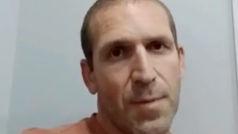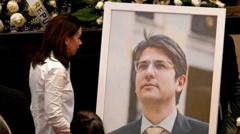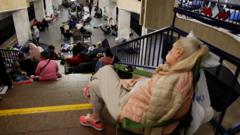Is the CDC Facing a Leadership Crisis After Director's Ouster?

Published: 2025-08-28 01:01:40 | Category: technology
This article discusses the recent resignations of several senior leaders at the US Centers for Disease Control and Prevention (CDC) following the abrupt removal of Director Susan Monarez. Her departure has raised questions about the agency's future direction, particularly under Health Secretary Robert F. Kennedy Jr., known for his controversial views on vaccines. The resignations signal a potential crisis at the CDC amid growing concerns over public health policies.
Last updated: 28 October 2023 (BST)
Key Takeaways
- Susan Monarez was ousted from her role as CDC Director less than a month after her Senate confirmation.
- Three senior officials, including the Chief Medical Officer, have resigned in the wake of her removal.
- Health Secretary Robert F. Kennedy Jr. faces scrutiny for his stance on vaccinations.
- Monarez's departure highlights rising concerns about misinformation and budget cuts at the CDC.
- The agency has experienced significant layoffs, impacting its infectious disease response efforts.
The Context of CDC Leadership Changes
The recent leadership changes at the CDC come at a tumultuous time for public health in the United States. The removal of Susan Monarez as CDC Director has prompted a wave of resignations from senior officials, raising alarms about the agency's stability and effectiveness. Monarez was confirmed by the Senate only last month, making her ousting particularly surprising.
Who is Susan Monarez?
Monarez's background in infectious disease research set her apart as the first CDC director in 50 years without a medical degree. Appointed by President Donald Trump, her confirmation followed the withdrawal of another nominee due to controversial views on vaccines. Monarez's brief tenure was marked by significant events, including addressing staff concerns after a gunman attacked the CDC headquarters, believing he had been harmed by COVID-19 vaccines.
Recent Resignations and Their Implications
Following Monarez's departure, three senior CDC leaders resigned: Daniel Jernigan, Chief Medical Officer Debra Houry, and Demetre Deskalakis, head of the National Center for Immunization and Respiratory Diseases. Each resignation highlights growing discontent within the agency, particularly regarding the handling of misinformation about vaccines and budget cuts that threaten the CDC's operations.
The Role of Robert F. Kennedy Jr.
Health Secretary Robert F. Kennedy Jr., known for his sceptical views on vaccines, has been under scrutiny for his influence on the CDC's direction. His public statements regarding vaccine safety have raised concerns among health experts, who argue that they contribute to misinformation and erode public trust in health authorities.
Concerns About Public Health Policy
Dr. Houry's resignation letter specifically addressed the "rise of misinformation" surrounding vaccines, indicating a broader concern that the CDC's credibility is at stake. The agency is now facing challenges in combating misinformation while trying to maintain its authority in public health matters. This situation is further complicated by the recent layoffs of approximately 600 CDC employees, including those involved in critical infectious disease research.
Impact of COVID-19 Vaccines on Public Health Strategy
The FDA recently approved new COVID-19 vaccines, limiting access to seniors while excluding younger adults and children without underlying health conditions. This shift in vaccine policy reflects ongoing changes in public health strategy and may be influenced by the current political climate surrounding vaccinations.
The Fallout of the Layoffs
The layoffs at the CDC, affecting employees engaged in crucial research and public health responses, raise questions about the agency's preparedness for future health crises. As the landscape of infectious diseases evolves, the loss of experienced personnel could hinder the CDC's ability to respond effectively to emerging threats.
Future of the CDC and Public Health
The recent upheaval at the CDC underscores the need for stable leadership and clear public health messaging. As misinformation continues to proliferate, the agency must find ways to rebuild trust with the public and ensure that its directives are based on sound science.
The Road Ahead for CDC Leadership
Moving forward, the CDC faces the challenge of appointing a new director who can navigate the complexities of public health in a climate of uncertainty and division. This appointment will be pivotal in shaping the agency's future direction and restoring confidence in its mission to protect public health.
Conclusion
The current situation at the CDC is indicative of broader challenges within the US public health landscape. As the agency grapples with leadership changes, misinformation, and budgetary constraints, its ability to effectively respond to health crises remains at stake. The need for a renewed commitment to science-based public health policy has never been more critical.
FAQs
What led to Susan Monarez's removal from the CDC?
The reasons behind Susan Monarez's removal as CDC Director are currently unclear, but her lawyer stated that she refused to comply with "unscientific" directives, indicating a possible conflict with the current administration's health policies.
Who are the other officials that resigned from the CDC?
In addition to Susan Monarez, three senior officials including Chief Medical Officer Debra Houry and Demetre Deskalakis, head of the National Center for Immunization and Respiratory Diseases, have resigned, signalling discontent within the agency.
How has Robert F. Kennedy Jr. influenced the CDC's direction?
Robert F. Kennedy Jr., as Health Secretary, has been a controversial figure due to his sceptical stance on vaccines. His views have raised concerns among health experts about the potential impact on public health messaging and the CDC's credibility.
What are the implications of the recent layoffs at the CDC?
The layoffs of approximately 600 CDC employees could significantly impact the agency's ability to respond to infectious disease threats and conduct essential research, raising concerns about its future effectiveness.
What is the current approach to COVID-19 vaccinations?
The FDA has recently approved new COVID-19 vaccines, but access is limited to seniors, excluding younger adults and children without underlying health conditions, reflecting a shift in vaccine policy.
As the CDC navigates these tumultuous changes, the public health landscape in the US will be heavily scrutinised. How the agency moves forward will be crucial in restoring public trust and ensuring effective health responses. #CDC #PublicHealth #Vaccination



